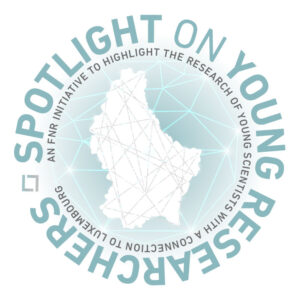BACK TO RESEARCH WITH IMPACT: FNR HIGHLIGHTS
BACK TO RESEARCH WITH IMPACT: FNR HIGHLIGHTS
Always has literature played a major role in the construction of any national identity – yet, Luxembourgish literature is very little known. Researchers are exploring the country’s literary identity, from a Francophone and a gendered perspective, with a particular focus on female writers.

While there has been some research on the linguistic and literary situation in Luxembourg, few focus on Luxembourgish writers, and zero on female writers.
“Our research project is the first of its kind,” says Laetitia Saintes, Postdoctoral researcher in literature and gender studies at the University of Luxembourg.
“Women writers tend to encounter certain difficulties when appearing on the literary scene. Our project FEATHER intends to map them out and more specifically to shed a new light on the difficulties encountered by women writers in Luxembourg, with its peculiar linguistic and literary situation. This aspect is little studied by critics today. Our project analyses how women authors like Anise Koltz or José Ensch come to integrate (and thus build) the Luxembourg literary scene.”
By taking this approach, the project helps view the literary field as a factor of sustainable social cohesion and generator of a multilingual and diverse national identity.
Defining what makes a writer
The main challenge for the researchers is to define what constitutes a literary work. Laetitia points out that the ‘Dictionnaire des auteurs luxembourgeois’ identifies 180 female writers.
“No distinction is made, however, between writers that only have published one or several translations, poets, novelists or authors of one newspaper article. Our challenge here will thus be to answer a most difficult question: what makes a text a literary work? What makes a writer?”
To get going, Laetitia is outlining specific criteria to determine the matter of the literary value of the numerous texts the researchers plan to investigate.
A closer look at female authors from 1900 to now
The FEATHER project will make it possible to account for an important literary heritage and to participate in the development and enhancement of the writings of female authors from 1900 to the present day.
“My job specifically focuses on the processes of canonisation and entry into the literary scene. I am also in charge of the online platform that will disseminate the results and outcomes of FEATHER. This platform will be a useful tool for promoting Luxembourg’s literary female heritage, which will allow the general public and specialists to (re)discover the works of female writers.”
Laetitia has discovered that despite a noticeable literary activity, Luxembourg is nowhere to be found in studies about the “Francophonies du Nord”.
“Luxembourg is an interesting case, because each of the languages spoken in the country has its own literature. These three literatures, however, are very little known outside of its borders.”
Dr Laetitia Saintes is a Postdoctoral researcher in literature and gender studies at the University of Luxembourg. Discover more about the FEATHER project funded by the FNR’s CORE programme.
MORE ABOUT LAETITIA SAINTES
On what she loves about research

“After a PhD in French literature at the Catholic University of Louvain, I am started as a postdoctoral researcher at the University of Luxembourg for the FEATHER project in September 2021.
“What I love most about science is its incredible variety (of topics, of areas) and the endless possibilities it opens to inquiring minds!”
On mentors with an impact
“My thesis supervisor at the University of Louvain, Damien Zanone, has had the most positive impact on my research, from day one. I consider him as my mentor to this day.”
On choosing Luxembourg for her research
“Seeing the job offer made me realise I knew very little about the University of Luxembourg. When I discovered how new and international the University was, I knew I had to apply, considering the research project was one of the most intriguing projects I had ever seen. I’m really happy I did!”
On where she sees herself in five years
“I would very much like to stay in research, whether in Belgium or in Luxembourg.”
About Spotlight on Young Researchers
Spotlight on Young Researchers is an annual FNR campaign where we shine a Spotlight on early-career researchers across the world with a connection to Luxembourg. Over 100 features have been published since the first edition in 2016.
Browse them below!

RELATED FUNDING

